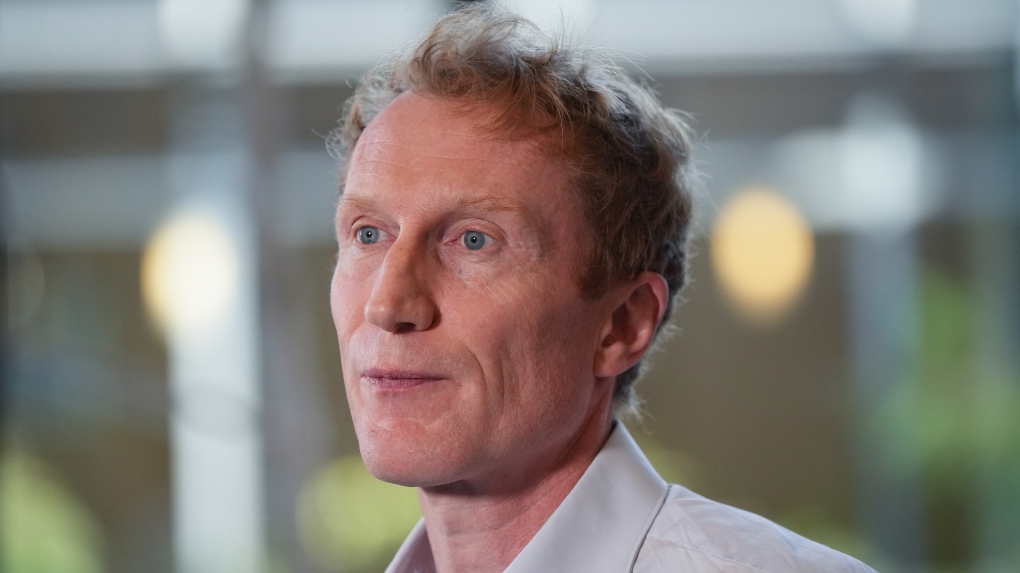As the Canadian government moves to include graduate students in its study permit cap for international students, experts and advocates are questioning whether the move is necessary and saying it could encourage top talent to look elsewhere.
Students enrolled in masters, doctoral and postdoctoral courses were previously exempt from the cap on international students announced by Immigration Minister Mark Miller in January.
But further cuts to student visas announced by the president this week include these measures, along with other steps to bring stability to the country’s burgeoning temporary immigrant population.
Ian Wellery, executive director of the Canadian Association of Graduate Schools, said the news was delivered without prior warning or consultation.
“Everyone I spoke to was surprised and blindsided by the announcement,” he said in an email, adding that the industry was “already in crisis.”
He said it was a move that would do “serious damage” to Canada’s reputation as an international education destination.
In his presentation, which he delivered in French, Miller acknowledged that students who come to Canada for master’s and doctoral degrees are “better prepared” to succeed in Canada and better meet the needs of the Canadian job market.
As such, 12 percent of international student visas will be reserved for graduate students, he said, a figure his office later clarified was consistent with their historical share of the student population.
Figures released by U15 Canada, an association of 15 public research universities, suggest current graduate student levels are already below the new cap, and that the group is not contributing significantly to the huge number of temporary residents Ottawa is trying to address.
The association’s internal calculations show that with capacity limits in place, there would have been room for several thousand more students last year and even more this year. Immigration, Refugees and Citizenship Canada did not immediately respond to a request for the latest figures.
Chad Gaffield, CEO of U15 Group, said graduate programs competing for the world’s best talent aren’t really the problem when it comes to mismanagement in the world of international student immigration.
“I haven’t heard any justification for why graduate students should be subject to the cap,” he said. Surveys have already shown that the cap is reducing the number of students applying to study in Canada.
Asked why, Miller’s office said the goal is to prevent bad actors from finding ways around the rules.
“We didn’t want universities to create fake graduate programs just to find loopholes,” spokesman Aissa Diop said.
For Gaffield, research universities – and therefore fields that require highly specialised, educated experts – risk becoming “collateral damage” in government efforts to reduce and target fraud.
He said the world’s most talented academics typically receive multiple offers from multiple countries, making it a “highly competitive environment.”
He suggested that while Canada has built a reputation for being a welcoming country for foreigners over the decades, that may be changing: “You will see headlines that say Canada is not as welcoming to foreigners as it has traditionally been,” he said.
Steve Orsini, president and CEO of the Council of Ontario Universities, said the cap would “add additional complexity to the application process” and could deter talented students from choosing Canada.
“This could have an impact on advanced degrees in fields such as engineering, medicine, life sciences and AI.”
André Côté, director of policy and research at The Dice, a think tank at Toronto Metropolitan University, said the broader policy goal of moving toward sustainable numbers was appropriate.
But he said this week’s announcement could discourage high-achieving students: “If some of the really high-achieving students don’t want to enroll, we don’t need to deter so many students to have a big impact.”
In addition to the cap, Ottawa is also tightening regulations on spousal work permits for some students: Starting later this year, spouses of master’s students will only be eligible to work in Canada if their partners have been in the program for at least 16 months.
Immigration attorney Barbara Jo Caruso agreed that spousal restrictions could be a big deterrent for graduate students, especially since graduate programs are already so costly.
Caruso, a founding partner at a Toronto corporate immigration law firm, said he’s not surprised the government is trying to improve stability across the system.
But she is skeptical that the number of graduate students represents only a “small part” of the problem Ottawa is trying to address.
“It seems to me like they’re doing this to give the appearance of doing something,” she said. “Right now, I’m not convinced that putting alumni in this hat is really going to make a big difference.”
This report by The Canadian Press was first published Sept. 20, 2024.

